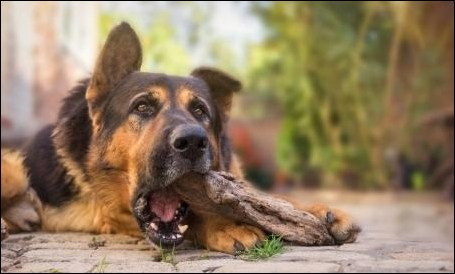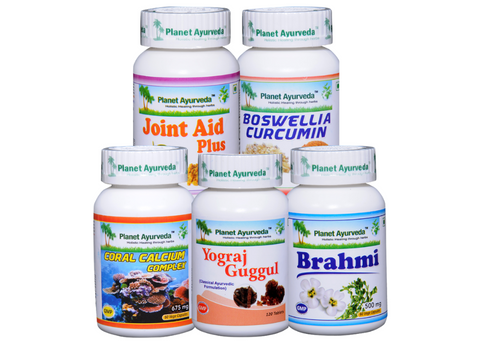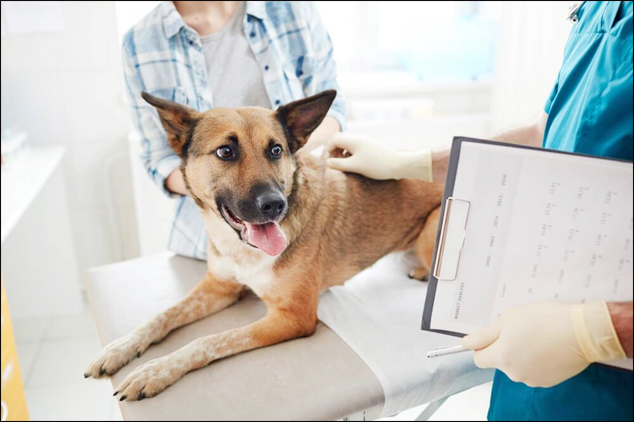Masticatory Muscle Myositis (MMM) | Ayurvedic Treatment
Abstract
Myositis is a term used to denote the inflammation in the muscles. Myositis can occur due to infection, autoimmune conditions and due to injury. Masticatory muscles are the muscles involved in chewing. Myositis is associated with weak and painful status of muscles. The dogs which are suffering from MMM are not able to open the mouth and chew easily.
Introduction
Masticatory muscle myositis is an immune-mediated, inflammatory condition that affects the muscles of mastication. It is an autoimmune disorder in which the immune system of dogs affects their own muscle tissue as foreign attacks as per the basic scenario of autoimmune disease. Dogs of any breed can be affected with MMM but some specific breeds are more susceptible to this problem like Golden retrievers, Doberman pinscher, German shepherds, Rottweilers and many more. In chronic types of MMM, a condition known as Trismus is commonly found. Trismus is a condition known as lockjaw due to prolonged spasms of muscles of mastication. Here in this article we will discuss the MMM with its ayurvedic aspect.

Causes
As the MMM is an autoimmune condition so to find out an exact cause is unknown. Some general causes of MMM are below-
- Bacterial infection
- Viral infection
- Vaccinations
- Stress
- Medication allergy.
- Recurrent exposure to environmental factors.
- Recurrent allergen exposure.
Symptoms
Following are the Basic Symptoms Associated with MMM.
- Unable to open the mouth
- Eyes look sunken
- Eyes look protruding
- Stiff movements
- Weakness
- Regurgitation of food and water
- Difficulty swallowing
- Difficulty breathing
- Inability to open the jaw (trismus)
- Jaw pain
- Swelling or atrophy of the jaw muscles
- Difficulty eating and drinking
- Reluctance to play with toys
- Sunken or protruding eyes
Diagnosis
Following Diagnostic tools can be used to find out the Problem–
- The symptoms of MMM like inability to chew, inability to open the mouth properly also help to diagnose the problem.
- Blood tests can be done to check the status.
Ayurvedic Aspect
The pashu chikitsa in ayurveda is a dedicated approach to manage the problems of our pets. It is associated with the relation between humans and animals. Masticatory muscle myositis (MMM) can be correlated with vata vikar or especially the Mansagat vata. Vata commands all the activities in the body But for better body status all the doshas should be in a balanced state. The imbalance in the body doshas or their vitiation leads to poor status of the body. It is mentioned beautifully in a sutra by Acharya charak. It is due to factors which are able to provoke Vata dosha. Thus excessive vata leads to debilitated muscular strength. It is beautifully explained in a sutra by Acharya Charak. Charak chikitsa 28/32.
This sutra states that the symptoms of Mansagata vata are Gauravta (heaviness in the body), todvat vedna (pricking pain all over the body), dandmushtihatam (pain like fist blow), sarvangvedna (generalised bodyache), shramitam (fatigue).
The Ayurveda is playing a significant role in improving the status of dogs suffering from MMM.
The herbs like Chitraka (Plumbago zeylanica), Amalaki (Emblica Officinalis), Vibhitaki (Terminalia bellirica), Haritaki (Terminalia chebula), Shallaki (Boswellia serrata), Guggul (Commiphora mukul), Sonth (Zingiber officinale), Ashwagandha (Withania somnifera), Curcumin helps to manage the condition of MMM in dogs.
Herbal Remedies by Planet Ayurveda for the Management of MMM
Planet Ayurveda is a GMP-certified hub for the manufacturing of best-quality herbal remedies. Our prime goal and ambition is to awaken mankind to the deep secrets of Ayurveda and its health benefits. Our pets are our companions and it’s our prime duty to keep them free of disease. In the same direction Planet Ayurveda has brought the best formulations for the management of MMM in dogs.
- Yograj Guggul
- Joint Aid Plus
- Boswellia Curcumin
- Brahmi Cap
- Coral Calcium Complex
Brief Explanation
1.Yograj Guggul
Yograj guggul is a polyherbal classical formulation formulated by Planet Ayurveda having Purified Guggul (Commiphora mukul), Musta (Cyperus rotundus), Chitraka (Plumbago zeylanica), Amalaki (Emblica Officinalis), Vibhitaki (Terminalia bellirica), Haritaki (Terminalia chebula), Pippali Moola (Piper longum) and many more as the chief ingredients. Yograj guggul helps to relieve the pain and inflammation in the body. It is helpful to manage the autoimmunity conditions in the body. Thus Yograj guggul has the ability to counter the issues of pain. It helps to prevent the status of excessive pain due to Vata pacifying properties.
Dosage– 3 tab twice daily
2. Joint Aid Plus
Joint Aid plus of Planet Ayurveda is a natural formulation of Planet Ayurveda having Nirgundi (Vitex negundo), Shallaki (Boswellia serrata), Guggul (Commiphora mukul), Sonth (Zingiber officinale), Ashwagandha (Withania somnifera) as a chief ingredient. This formulation is useful for the better status of joints in horses. The Vata pacifying properties of the added herbs are used to reduce joint pain and have good results in the diseases associated with MMM.
Dosage– 2 cap twice daily
3. Boswellia Curcumin
Boswellia curcumin is a herbal formulation loaded with Shallaki (Boswellia serrata) and Curcumin (Curcuma longa). Shallaki is a natural painkiller and curcumin acts as an anti-inflammatory agent. This herbal capsule is helpful in the management of pain and inflammation in the body. The Vata dosha is associated with the pain, hence Boswellia Curcumin is able to manage the pain in MMM.
Dosage– 2 cap twice daily
4. Brahmi Cap
Brahmi capsule is a single herb capsule of Planet Ayurveda loaded with the pure extract of Brahmi (Bacopa monnieri). The Brahmi cap is able to drain out the stress in dogs associated with MMM. It helps to promote nerve conduction and is able to promote the brain tone as well. It is able to prevent brain damage and reduce stress and anxiety.
Dosage–2 caps twice daily.
5. Coral Calcium Complex
Coral calcium complex is a herbal formulation of Planet Ayurveda formulated by the combination of a variety of herbo mineral components. The chief ingredients of Cap Coral calcium complex are Praval pishti (coral), Akik pishti (Agate, Jahar Mohra Pishti (An Ayurvedic herb), Kamdudha Ras (An Ayurvedic herb), Mukta pishti (Pearl), Guduchi (Giloy Satva). Coral calcium capsule is able to maintain the good status of joints and bones. It is able to enhance the levels of calcium naturally.
Dosage– 2 cap twice daily
CONTACT PLANET AYURVEDA TO PROVIDE YOU THE COSTING / ORDERING AND DELIVERY INFORMATION AT – COSTING.PLANETAYURVEDA@GMAIL.COM OR CALL AT +91-172-5214040 OR CHECK WEBSITE – WWW.PLANETAYURVEDA.COM
Conclusion
MMM is a disease of concern for the beloved pets, the dogs. It is a very painful condition associated with Stiff movements, Weakness, Regurgitation of food and water, Difficulty swallowing, Difficulty breathing, Inability to open the jaw (trismus). The herbal remedies by Planet Ayurveda are helpful to manage the status of Masticatory muscle myositis (MMM) and are able to prevent the side effects of synthetic medicines.





